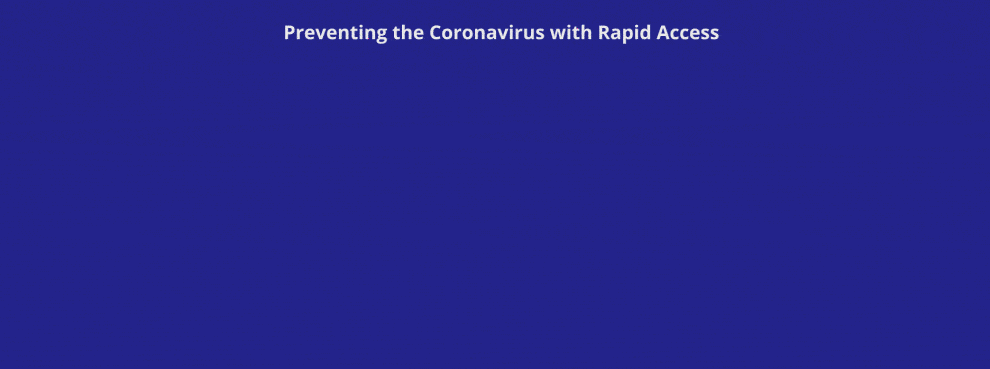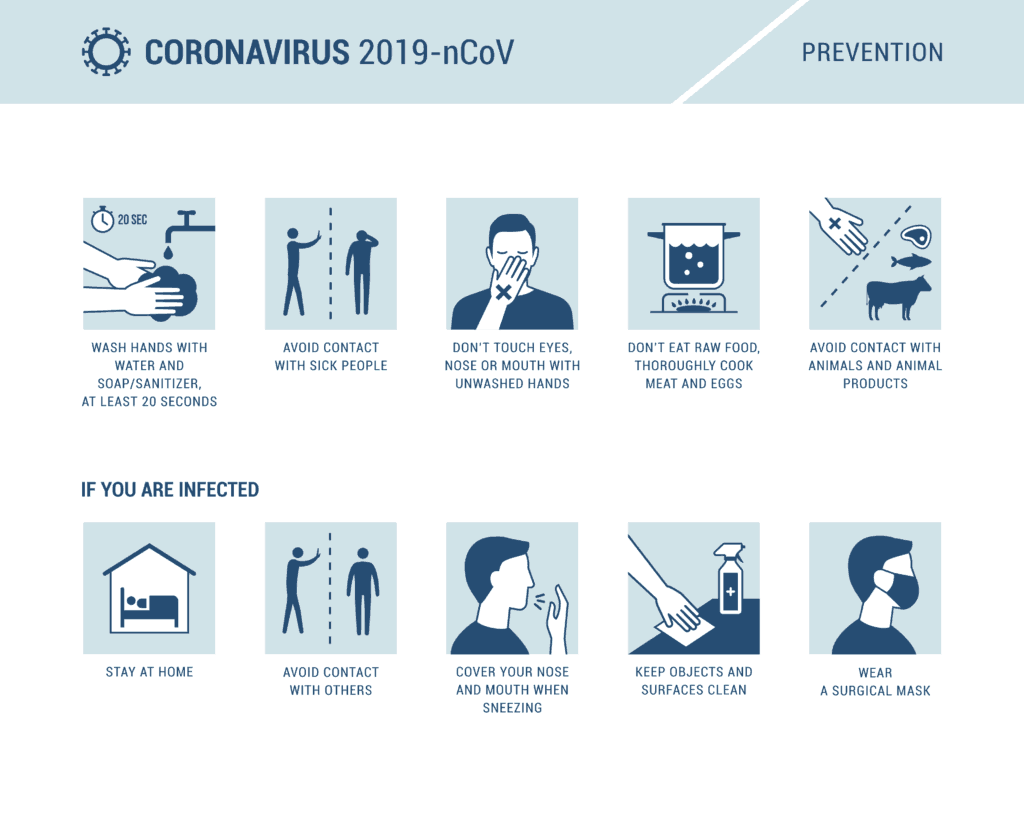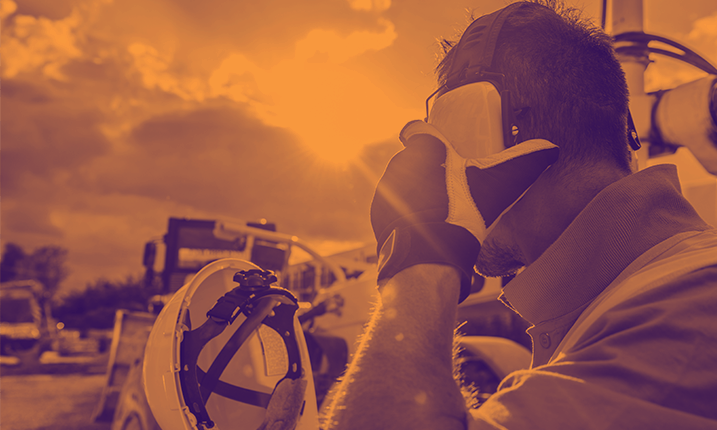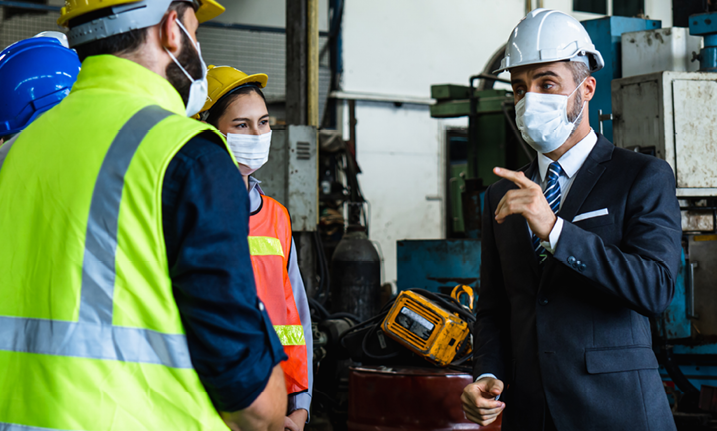

Bega Cheese — the great Australian food company — is staying one step ahead of the Coronavirus outbreak by screening visitors and contractors before they enter any of their worksites. Coronavirus is a family of viruses that can manifest as anything from the common cold to SARS, and this recent outbreak is a new strain that has already killed thousands of people.
On 30 January 2020, the World Health Organisation (WHO) announced that the 2019 strain of Coronavirus was a public health emergency and asked the global community to take steps to contain the virus. In today’s blog we’ll be looking at some of the ways our valued client Bega Cheese has been managing the risk to their business — and to public safety.
Is Coronavirus a WHS risk to your business?
Because Coronavirus is now listed as a global health emergency, all Australian businesses should consider if the disease presents a risk to their own workers. Every business owner or operator has a duty under the Work Health and Safety Act (in their State or Territory) to provide a workplace that is free from risk — so if there is any way your workers could become infected with Coronavirus during the course of their work, you’ll need to take action to eliminate (or minimise) that risk.
Your business should conduct a risk assessment which identifies hazards and considers:
- Is there a risk of infection to workers or other people? You could begin by checking the Australian Government Department of Health website for a listing of higher risk industries (hospitality, health care, universities etc).
- What could be the consequences of an infection? An outbreak at an aged care facility or a food manufacturing plant could have catastrophic outcomes.
- What is the likelihood of an infection? Are there international travellers coming and going from the workplace (E.g., universities, hospitals)?
If your risk assessment has identified any Coronavirus hazards, you are required (under the WHS Regulations in your state or territory) to introduce suitable control measures that reduce the risk of infection or transfer of the disease.
How Bega Cheese is managing Coronavirus WHS risk
Being one of Australia’s largest food manufacturers, Bega Cheese responded immediately to the Coronavirus threat. One of the first steps they took was to begin screening any visitors or contractors who enter their buildings, factories, offices, warehouses and food processing plants.
Bega Cheese: real-world use of Rapid Access
“Recently, Rapid was quick to help us manage our staff with the recent Coronavirus situation. Within 30mins we had adjusted our forms on all kiosks asking staff pre-screening questions before they came on site.” – Bega Cheese Limited.
Bega Cheese were already using Rapid Access, Rapid Induct, and Rapid Contractor Management — so, it was easy for them to quickly introduce a set of screening questions for workers and contractors as they arrive at the front gate.
Their process (using Rapid Access) looks something like this:
- Visitor arrives at the gate/reception area.
- Each visitor is queried about the purpose of their visit and assigned a visitor type. E.g., contractor carrying out routine maintenance, delivery driver unloading raw materials, sales rep visiting office.
- Different visitor types trigger different sets of questions. Eg, an office staff member will be asked different questions to a contract electrician.
- Visitors may be denied entry to the site if they are flagged as high-risk during the screening. E.g., displaying signs of flu, have a fever, have been to mainland China in the last 14 days.
- If someone is denied entry, the Site Manager is immediately notified by text message.
Of course, this is just one element of Bega’s Coronavirus Risk Management Plan, but we are incredibly proud that Rapid Access has made this process both accurate and efficient — the system allowing tiered responses to each screening question. For example:

FIRST SCREENING
Have you travelled to Mainland China in the last 14 days?
YES: no entry until medical clearance
NO: SECOND SCREENING
SECOND SCREENING
Are you entering a manufacturing area?
NO: LOW-RISK SCREENING
YES: MANUFACTURING SCREENING
Managing health and hygiene with Rapid Safety Systems
“The Rapid system also helps us manage health and hygiene for our business via online inductions for our staff.” – Bega Cheese Limited.
As of 17 February 2020, the cause and transmission of Coronavirus disease (COVID-19) remains unknown. There is currently no vaccine or cure. As new information emerges about the disease — and if more people become infected — the risk to the safety of your workers may change.
This is an excellent time to introduce stronger internal controls to address any communicable disease. Things like:
- Actively encouraging sick employees to stay home
- Having procedures for screening sick employees, separating them from their workmates, and sending them home.
- Ensuring sick employees provide medical clearance before returning to work.
All of these controls can be easily built into your Rapid Access and Rapid Induction systems but we also recommend supporting administrative controls by providing proper amenities for your workers. This could be anything from hand sanitisers to carrying out regular environmental cleaning of workstations and common areas.
Promoting wellness in the workplace
Outbreaks of new diseases can cause widespread fear and panic amongst the general public, so we also recommend giving your workers up-to-date information about how to prevent the spread of infections.
Rapid Induct will allow you to update your workers through notifications and training modules. The World Health Organisation recommends:
- Regular handwashing, especially after touching animals and soil
- Covering your mouth and nose when sneezing or coughing
- Avoid touching the eyes, nose, and mouth
- Cooking eggs and meat thoroughly
- Keeping a metre distance between yourself and anyone with cold and flu symptoms

You might also consider posting updates to bust some of the weird Coronavirus myths — e.g., YES you can safely receive letters and parcels from China, NO you can’t kill the Coronavirus by spraying your body with chlorine (apparently, it’s a thing).
SAFETY TIP: if you’re using Rapid Induct, we suggest building a health and hygiene module that demonstrates correct hand washing steps, plus simple infection controls that can be used both at work and at home.
Where to now?
If you’re serious about work, health and safety — and protecting your workers, customers, clients, and contractors from the Coronavirus — please take the following actions today.
- Get in touch with the team at Rapid Global to find out how Rapid Safety Systems can help you minimise health and hygiene risk at your worksite. Request an immediate call-back, brochure, and free software demonstration.
- If you are a Rapid Access client already, contact support so we can help set it up for you.

Resources for Coronavirus
These three websites are information launch points for managing Coronavirus risk at your workplace. Use them as the base of your upcoming risk assessment:
Coronavirus disease (COVID-19) outbreak – World Health Organisation (WHO)
Businesses must have measures in place to protect workers at risk from Coronavirus – SafeWork Australia
Coronavirus (COVID-19) health alert (updated daily) – Australian Government Department of Health







